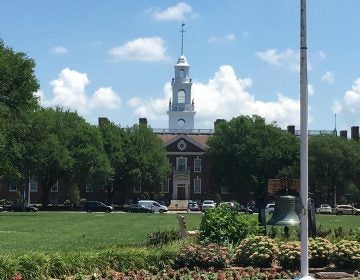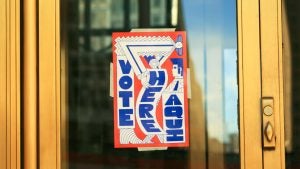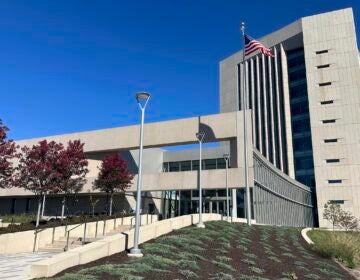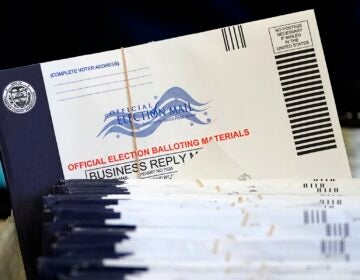A month before Election Day, Delaware Supreme Court hears a dispute over no-excuse mail voting
A lower court struck down the new statute as unconstitutional on Sept.15. The state wants the high court to overturn that ruling, but Republicans want it upheld.
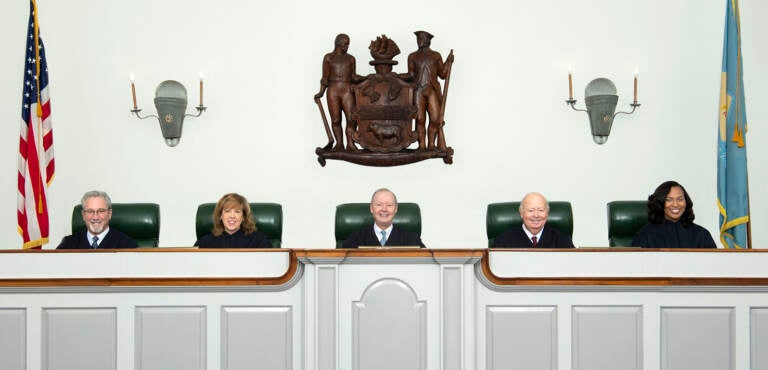
From left, the Delaware Supreme Court: Justice Gary F. Traynor, Justice Karen L. Valihura, Chief Justice Collins J. Seitz, Jr., Justice James T. Vaughn, Jr., Justice Tamika R. Montgomery-Reeves. (Delaware Supreme Court)
Ask us: As Election Day draws near, what questions do you have?
With Election Day barely a month away, Delaware’s chief deputy attorney general on Thursday urged the state Supreme Court to overturn last month’s lower court ruling that invalidated the state’s new vote-by-mail law.
Alexander Mackler argued during the 50-minute hearing that, contrary to the Sept. 15 Chancery Court ruling, the law was not an expansion of limited absentee voting, but rather a legitimate move by the General Assembly, which has broad powers to create laws pertaining to elections.
“Absent a constitutional inhibition, the legislature has full and unrestrained authority to exercise its discretion in any manner it sees fit in its wisdom or even folly,’’ Mackler told the five justices.
In striking down the law, Vice Chancellor Nathan Cook ruled that state courts have consistently stated that absentee balloting is only permissible as spelled out in the Delaware Constitution when a voter can’t get to their polling location for these reasons:
- Public service to the state or nation
- Business or occupation for themselves, or when accompanying a spouse or dependent
- Illness or injury
Mackler stressed that the constitutional provision “does not tie the hands of the General Assembly.” The chief deputy pointed to another constitutional provision that doesn’t pertain to absentee voting.
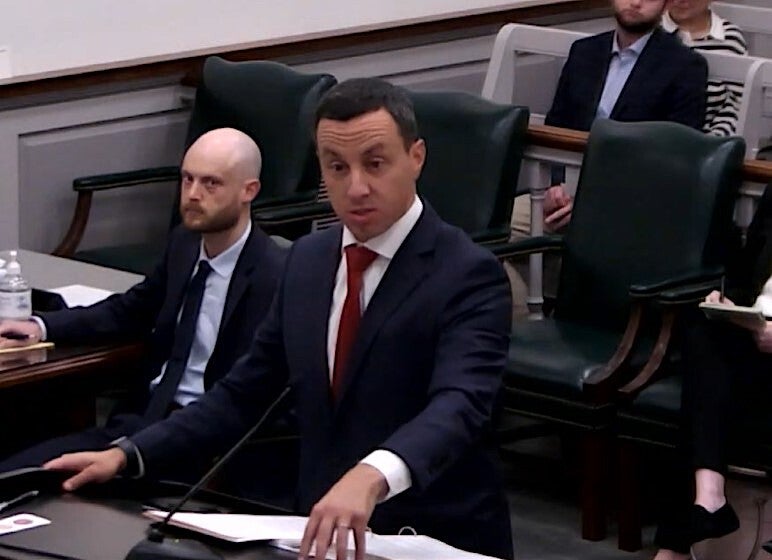
That provision allows lawmakers to “prescribe the means, methods, and instruments of voting so as best to secure secrecy and the independence of the voter, preserve the freedom and purity of elections, and prevent fraud, corruption, and intimidation threat.”
Lawmakers had approved mail-in voting for all as an emergency pandemic measure in 2020, and their action withstood a lawsuit by the state Republican Party. About one-third of the 500,000 votes cast in the general election that year were done by mail, with no serious issues reported.
Then, led by the Democrats who control both the House and Senate, legislators tried to pass a constitutional amendment expanding vote by mail to everyone who wanted it, with no excuse needed. But when it failed, legislators approved the new law in late June.
In the Sept. 13 primary election held two days before Cook issued his ruling, about one-fifth of the approximately 50,000 votes were done by mail.
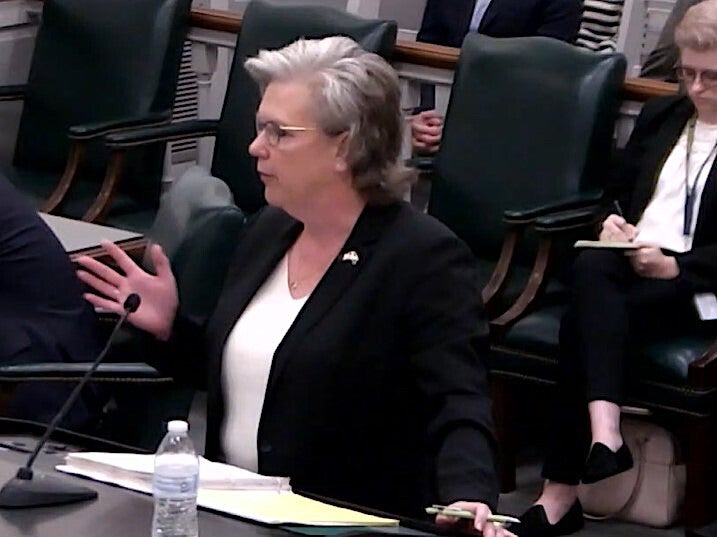
The lawsuit that led to Cook’s decision was brought by Republican state legislative candidate Michael Higgin, three GOP voters, and a GOP elections inspector. Representing them before the justices Thursday were two prominent Republicans: Jane Brady, a former three-term attorney general, Superior Court judge, and state GOP chair; and Julianne Murray, who ran unsuccessfully for governor in 2020 and is currently the GOP nominee for attorney general against incumbent Kathy Jennings.
Mackler also claimed that Cook’s ruling should be overturned because the parties challenging the law don’t have legal standing and have not demonstrated any harm to them.
“These plaintiffs are not legally injured. They are politically aggrieved,’’ Mackler said. “They have a policy disagreement with the Legislature that they want this court to legitimize.”
Associate Justice Gary Traynor questioned that contention as far as Higgin is concerned.
“Doesn’t a political candidate standing for election have sufficient interest in that election occurring in compliance with the Delaware Constitution, such that he or she would have standing to challenge a statute that arguably is in violation of the Constitution?’’ Traynor asked.
Brady, attorney general from 1995 to 2005, declared that Higgin and her other clients certainly do have standing.
“We contend that allowing unlawful ballots that are cast in contravention of the Constitution constitute invalid ballots,’’ Brady said. “As a candidate, Mr. Higgin has a legally protected interest in ensuring that all the votes that are cast in his election are accounted for. Counting ballots that are contrary to the constitutional provisions negate valid votes and dilute the impact of the support of those who vote for Mr. Haggin.”
Murray argued that mail-in voting isn’t a separate act by lawmakers, but is yet another expansion of absentee voting.
Lawmakers, she said, “have broad power but they are constrained’’ by the Constitution. “Because those restrictions in the plain reading are there, it would have to be a Constitutional amendment.”
The justices did not rule from the bench, and will issue a written decision on their own timetable, though it is expected to be issued for the Nov. 8 election.
Cook’s ruling allows elections officials to process mail-in voting applications and prepare ballots, but unless the high court rules in favor of the state, mail-in ballots cannot be sent to voters to use on Nov. 8.

Your go-to election coverage
WHYY is your source for fact-based, in-depth journalism and information. As a nonprofit organization, we rely on financial support from readers like you. Please give today.



